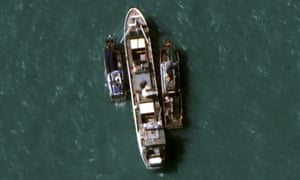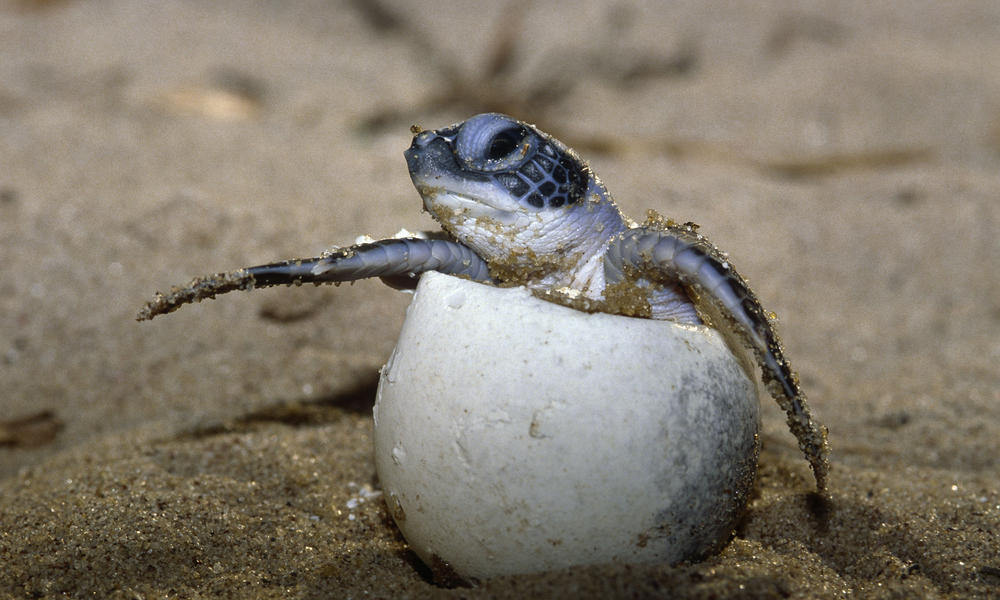1. US Issues Arctic Drilling Permit to Royal Dutch Shell
On Monday the US government gave Royal Dutch Shell permission to drill for oil and natural gas in the Arctic Ocean. These permits will allow for exploratory drilling until late September. If Shell does discover oil or natural gas, they will have to apply for additional permits before going into production. After the 2012 mechanical failures and the environmental impact that followed the events, additional drilling activity raises significant global concern. Read more...
-----------------------------------------------
2. 1,800 Years of Global Ocean Cooling Halted by Global Warming
 This week, a paper published in the journal Nature Geoscience reported that, prior to the 19th century human-caused global warming, the surface layer of Earth's oceans had a 1,800 year long cooling trend. The study also indicated that the coolest temperatures occurred during the "Little Ice Age" spanning from the 16th to 18th centuries. According to one of the authors of the study, "the Earth is warming about 20 times faster than it cooled during the past 1,800 years". Read more...
This week, a paper published in the journal Nature Geoscience reported that, prior to the 19th century human-caused global warming, the surface layer of Earth's oceans had a 1,800 year long cooling trend. The study also indicated that the coolest temperatures occurred during the "Little Ice Age" spanning from the 16th to 18th centuries. According to one of the authors of the study, "the Earth is warming about 20 times faster than it cooled during the past 1,800 years". Read more...
-----------------------------------------------
3. Drone Video Captures Kayaker Paddling Whales
-----------------------------------------------

After years of discussions and petitions, UPS has agreed to stop accepting shipments of shark fins. Previously, UPS said that the shipments were being inspected but, as they learned from the World Wildlife Fund, that was not an accurate check. Every year millions of sharks are killed for their fins. This shipment ban will continue to make the business and trade of shark fins more difficult and aid to eradicate the practice. Read more...
-----------------------------------------------
-----------------------------------------------
6. How Did Sea Turtle Get a Straw Up Its Nose?
Although the title of this article may sound funny the first time you read it, it's actually quite upsetting! This is yet another example of how ocean pollution is harming the many wonderful creatures in the ocean. Scientists spent nearly ten minutes pulling a plastic straw from the nostril of an olive ridley sea turtle. Usually, turtles will be found with plastic bags or even toothbrushes in sea turtle's stomach but this was a true surprise to the rescue team. Makes you rethink using that plastic straw when out at a restaurant. Read more...
-----------------------------------------------
7. Dolphin Health is Connected to Human Well-Being
A research program called the Health and Environmental Risk Assessment (HERA) studied how diseases that affect dolphins are related to environmental stressors. These may provide an early warning system to some changes that could affect animal and human health. The program has studied more than 350 bottlenose dolphinsin the Indian River Lagoon over the last 12 years. Gregory Bossart, chief veterinary officer and senior vice president at Georgia Aquarium, stated that "dolphins are like the proverbial canaries in a coal mine...They can serve as indicators of ocean health, giving insight into larger environmental issues that may also have implications for human health. Read more...
-----------------------------------------------
8. Australia and Indonesia Join to Curb Illegal Fishing
 South-east Asia has the highest number of fishing vessels in the world. For years there was tension between Indonesia and Australia due to illegal fishing that lead to a decrease in fish populations and other environmental concerns. The two nations have now paired up to tackle the illegal activity. This week, Indonesia demonstrated it's seriousness concerning the protection of their waters and ecosystem and sank 38 fishing vessels. Read more...
South-east Asia has the highest number of fishing vessels in the world. For years there was tension between Indonesia and Australia due to illegal fishing that lead to a decrease in fish populations and other environmental concerns. The two nations have now paired up to tackle the illegal activity. This week, Indonesia demonstrated it's seriousness concerning the protection of their waters and ecosystem and sank 38 fishing vessels. Read more...
-----------------------------------------------
9. Marine Scientist Weighs in on Proposed Cruise Pier
A few weeks ago, our Week in Review showcased the proposed cruise pier in Grand Cayman and the environmental impact that it would have on the ecosystem. Dr. Ellen Prager, a marine scientist and oceanographer who works as a consultant to cruise lines, was interviewed this week by Cayman 27. Dr. Prager discussed both the environmental destruction that the port would create as well as ways for Grand Cayman to increase tourism in environmentally friendly ways. Read more...
-----------------------------------------------
Be sure to "LIKE" http://facebook.com/SeaSave to ensure our "Week in Review" is delivered to your newsfeed every Thursday.
Sea Save Foundation is committed to raising awareness of marine conservation. The Week in Review is a team effort produced by the Sea Save staff to provide a weekly summary of the latest in marine research, policy, and news.



